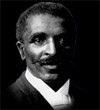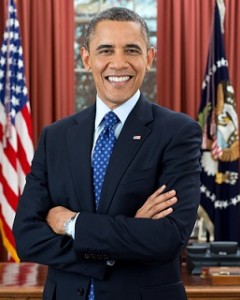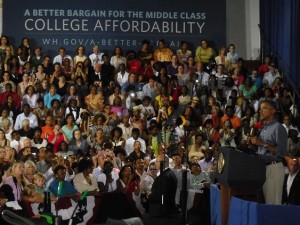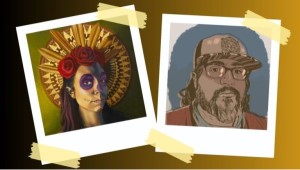Those who have no record of what their forebears have accomplished lose the inspiration which comes from the teaching of biography and history.
– Carter G Woodson
Imagine a world in which people like you have no written history, or that which has been written is incomplete or distorted. Before Dr. Carter Goodwin Woodson (1875–1950) began his work, there was very little information, and much of that stereotypical misinformation, about the lives and history of Americans of African descent.*
In 2014 with an African-American President of the United States some are asking “is there a need for Black History Month?” Coupled with satirical phrases,” they picked the shortest coldest month”. Before Oprah, Bill Cosby, BET and Beyonce’ accomplishments of African-Americans were unnoticed,invention recognition misappropriated. Black History is American History
What we now call Black History Month was originated in 1926 by Carter Godwin Woodson as Negro History Week. The month of February was selected in deference to Frederick Douglass and Abraham Lincoln who were both born in that month. In 1976, this celebration was expanded to include the entire month of February, and today Black History Month garners support throughout the country as people of all ethnic and social
backgrounds discuss the black experience.
Carter Woodson was raised in New Canton, Virginia. He was the son of a former slave and one of nine children. Woodson’s mother secretly learned to read while she was a slave, and taught her children to read. When Woodson was twenty, he began attending Frederick Douglass High Schoo
l while working in a coalmine in West Virginia. It was at the mine that he realized the importance of African American history when black miners who were Civil War veterans told him unrecorded oral histories.
Woodson completed high school in two years, and began attending Berea College in Kentucky. In 1903, he earned his bachelor’s degree. He spent time working and traveling in the Philippines, Asia, Europe, and Africa, while at the same time earning his bachelor’s in European history through a correspondence course at the University of Chicago. He received his second B.A. and M.A. in 1908. By 1912, he had received his Ph.D. in history from Harvard University.
While living in Washington, D.C, Woodson worked as a teacher at a high school until 1917. In 1916, he co-founded the Association for the Study of Negro Life and History, which was renamed the Association for the Study of Afro-American Life and History in 1976. The purpose of the organization was to publish and fund research and writing projects about black history.
Woodson was so dedicated to the cause that he financed the Association with his personal income from his employment as principal at the Armstrong Manual Training School and later, with his income from Howard University where he was dean of the school of liberal arts and a professor of history. Woodson was able to resign from Howard and work in the Association full-time after the organization was given substantial financial support from the Carnegie Corporation and the Laura Spelman Rockefeller Memorial.
With his full attention given to the Association, Woodson was able to create a successful organization that established a home study program, directed the study of African American history in schools, hired researchers to search the international archives, and lastly, he founded the Associated Publishers, which published books and resources about black history. The Association also published the quarterly publication, the Journal of Negro History, which was distributed on all of the continents.
Woodson was not just involved in promoting and publishing black history; he was also an author. His work included, The Negro Prior to 1861 (1915), The Negro Church (1921), Negro Makers of History (1928), The Miseducation of the Negro (1933), and The Negro in Our History (1922), which was considered the best textbook about black history.
Carter G. Woodson would be sad to know that out of all the hundreds of Black men and women who produced so many substantial inventions (from the development of crop rotation, the traffic light, the mail box, gas mask, fountain pen, typewriter, telegraph, golf tee, automatic gear shift, commode toilet— to the method of dry cleaning clothes, the electric lamp, and the automatic car coupler and air brake for the railroad) benefiting this country, only four Black inventors have been inducted into the National Inventors Hall of Fame in Akron, Ohio.

During the last four years, the Patent and Trademark Office has been working closely with the National Inventors Hall of Fame Foundation to rectify this situation and honor the true story of Black History.
The four black inventors inducted into the National Inventors Hall of Fame are:
- George Washington Carver – Inducted in 1990
- Percy Lavon Julian – Inducted in 1990
- Mark Dean – Inducted in 1997
- James E. West – Inducted in 1999
Woodson is most known for his creation of Negro History Week (1926). The idea was originally that of the Omega Psi Phi, a black fraternity of which he was an honorary member. The week was a time in which contributions by blacks were emphasized. Woodson popularized the holiday when he put his name behind the idea. It eventually evolved into Black History Month in 1976.
Woodson did not view “Negro History Week” as something that would continue indefinitely in fact according to historical accounts compiled by Dorothy E. Lyles, “ Dr. Woodson often said that he hoped the time would come when Negro History Week would be unnecessary; when all Americans would willingly recognize the contributions of Black Americans as a legitimate and integral part of the history of this country.
Whether it’s called Black history, Negro history, Afro-American history, or African American history, his philosophy has made the study of Black history a legitimate and acceptable area of intellectual inquiry. Dr. Woodson’s concept has given a profound sense of dignity to all Black Americans.
The aforementioned information was compiled from several sources, including Carter G Woodson by Korey Bowers Brown; Chicago Public Library, Vivian G. Harsh Research Collection of Afro-American History and Literature Dorothy E. Lyles, Compiler; * National Park Service Home of Carter G Woodson
Celebrating Black History 365 24/7: A Salute to Black History
By Dr. Alice Tyler Milton

http://blackhistorysalute.com/ – Links that will enrich your knowledge of the past and present selfless contributions made by just a FEW of our MANY great African Americans. As you read the wealth of information on the pages, think about how our world would be today without the selfless contributions and what we have learned from the good and the bad. Also, recognize the unbending focus and intensity of their efforts despite repeated rejections and unfulfilled expectations.
We must continue to remember and respect our heritage (even though one might not agree with the actions of some–it is still history) by never saying good-bye to yesterday, for we are still standing on their shoulders—yesterday made our present possible. Appreciate OUR Past . . .
» Armed Forces / Laws Enforcers
» Cultures / Religion / History
» Literary / Authors / Writers
» Arts / Entertainment
» Education
» Politics / Activists
» Athletics
» Entrepreneurs / Inventors / Science










